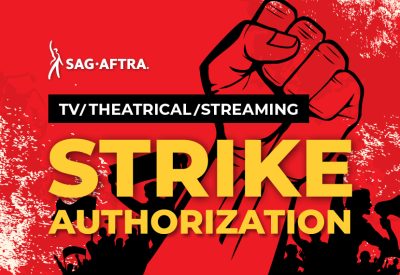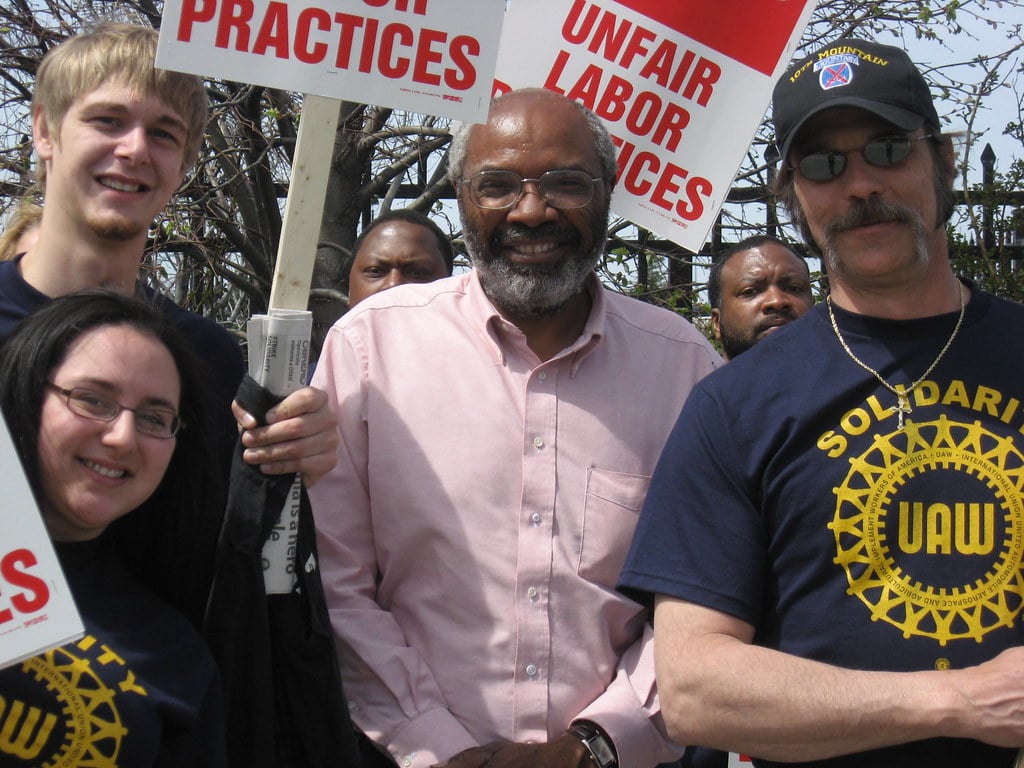Entertainment Strikes Have Profound Economic Impact
WGA and SAG-AFTRA in months-long work stoppage has resulted in lost revenues within the industry and other ancillary sectors

All Global Research articles can be read in 51 languages by activating the Translate Website button below the author’s name.
To receive Global Research’s Daily Newsletter (selected articles), click here.
Click the share button above to email/forward this article to your friends and colleagues. Follow us on Instagram and Twitter and subscribe to our Telegram Channel. Feel free to repost and share widely Global Research articles.
***
There was enormous publicity surrounding the box office revenues generated from the newly released movie “Barbie” during the first two weekends of August.
In its second week after release, the corporate and government-controlled media announced that over $US1 billion was taken in from consumers at the theaters.
The character of these news reports marked a not too subtle rebuke to the two unions which have been striking for better pay and working conditions within the film and television industry for several months. On May 2, the Writers Guild of America (WGA) walked off the job when they failed to reach an acceptable agreement with the Alliance of Motion Picture and Television Producers (AMPTP), which represents the owners and shareholders within the industry.
Later, on July 14, the Screen Actors Guild and the American Federation Television and Radio Announcers (SAG-AFTRA), joined the WGA members on strike against the same AMPTS owners. The combined membership of the two unions equals 171,000 entertainment industry workers, with 11,000 within the WGA and the other 160,000 as members of SAG-AFTRA.
These striking workers within the entertainment industry did not call for a boycott of the movies being released during the summer months. Nonetheless, they are required as striking workers not to participate in any promotional activities for the films being released.
In addition, the upcoming Emmy and Oscar awards programs will have to be postponed if the strike is not settled. Movie theaters and television studios are hard pressed to create and generate programming for their viewing audiences. A decline in products which are of interest to the general public can result in losses of revenue and profits.
WGA negotiators who have been representing their members in the more than 100 days of striking, have emphasized the critical issues at stake in the labor dispute. There is the lack of adequate pay which provides a living wage for the majority of its members. Benefits such as healthcare are not available to many WGA members since they do not earn enough money to qualify.
In addition, the use of artificial intelligence in a manner which can usurp the work done by screen writers while not providing compensation. Negotiators for the WGA and SAG-AFTRA indicate that the AMPTP has become more obstinate since the previous strike of 2007-2008.
In an article published by Hollywood Reporter on August 9, which featured an interview with WGA East President Michael Winship, among others, it quotes the labor leader as saying:
“It’s a different alliance than it was 15 years ago because it includes so many streaming companies like Amazon, like Netflix, like Apple and others. So, there is that apparent division between those companies and the legacy companies. I have no doubt that we’re gonna win. It’s just gonna take a little while longer. We’re as strong as ever, so I’m not concerned about moving past the 100-day point.”
The role of streaming companies has been central in the negotiations between the unions and AMPTP. Writers and actors say they are not receiving their owed residuals from the streaming firms.
This situation prevails while the companies and their promoters in the mainstream media are championing the revenue being taken in by owners and the movie houses. At the same time, many more households have access to streaming services which allows the owners to make enormous profits on several platforms simultaneously.
Both the WGA and SAG-AFTRA members have complained about the reduction in the number of episodes in a season which erodes their annual incomes. During the pandemic, auditions were done online without compensation to the SAF-AFTRA members.
Another member of the negotiating team for the WGA, Greg Iwinski, emphasized that the outcome of the strike will determine the futures of their members:
“You are really talking to 11,000 writers about will you ever be able to get a mortgage? Will you be able to pay rent in New York and LA? Will you be able to put your kids in school? Will you be able to pay off your student loans ever working in this? Or will you be a TV writer who has a second job?” See this.
Economic Impact in Other Sectors
There are estimates that the WGA and SAG-AFTRA strike has cost the California economy more than $US3 billion over the last three-and-a-half months. Not only are the earnings of the owners placed in jeopardy, along with the salaries of union members, there are other sectors which have been forced to lay off employees. See this.
The Hollywood Reporter, in a recent analysis of the damage being done to earnings as a result of the strike, pointed out that the loss of revenue is coming starkly into the purview of AMPTP as the work stoppage remains unresolved. If the strikes continue for many more weeks and months to come, the decline in earnings could prove devastating for the industry owners and shareholders.
With 171,000 workers on strike, their spending power has been greatly reduced. Strike benefits are important during labor actions. However, these remunerations are not nearly enough to maintain the necessary standard of living in the present period.
A business news website and television station, CNBC, wrote in a recent report:
“The strikes don’t impact just writers or actors. Halted productions impact all kinds of businesses, including companies that provide catering for productions, restaurants near studios, prop houses, set builders, dry cleaners, professional drivers, florists and more. ‘A lot of different people are impacted surrounding the industry,” Holmes says, “and it’s causing them a lot of hardship.’ People who hold entertainment jobs and entertainment-adjacent roles account for almost 20% of the LA-area income, says Lee Ohanian, an economics professor at the University of California, Los Angeles. ‘The economic impact is even bigger because average compensation in the industry is considerably higher’ than the average earner, he tells CNBC Make It.’”
Strike Reflects the Increasing Exploitative Character of Capitalism
There have been a wave of strikes and threatened labor actions among unions in the United States over the last few months. In addition to the WGA and SAG-AFTRA workers, the UPS corporation may have avoided a strike by 340,000 Teamsters when the negotiating team reached a tentative agreement with the executives in late July.
Members of the Teamsters union employed by UPS have until the end of August to approve the contract. If this tentative agreement is not approved, it could result in the commencement of a strike in the future, said to be the largest against a single company in U.S. history.
Abayomi Azikiwe among strike UAW workers (Source: Abayomi Azikiwe)
Salary and benefit increases offered to the UPS workers could set a standard for greater militancy on the part of other organized labor groups. The UAW is threatening to strike when their contract expires in mid-September.
UAW President Shawn Fain in an August 15 Facebook live broadcast said that:
“Whether or not there’s a strike next month is entirely up to the Big Three automakers. Our priorities are clear, the companies can afford them, and there’s plenty of time for the Big Three to get serious about these negotiations. This is about economic justice for the auto workers who make this industry run, and who have generated record profits for Ford, General Motors and Stellantis. All of us are at war with corporate greed.”
These labor actions are important in light of the declining annual household incomes among working families in the U.S. Inflation, although slowing from its nearly 9% annual rate for 2022, remains a serious problem among the majority of working class and oppressed peoples struggling to purchase gasoline, utilities, food, housing and other essentials.
With presidential elections scheduled to begin in early 2024, neither of the leading capitalist parties are presenting a program to relief the distress of the people in the U.S. What is lacking is a firm political response on the part of the workers and nationally oppressed aimed at achieving the large-scale redistribution of wealth and income which would disempower the ruling class and create a just and equal society for all who live within it.
*
Note to readers: Please click the share button above. Follow us on Instagram and Twitter and subscribe to our Telegram Channel. Feel free to repost and share widely Global Research articles.
Abayomi Azikiwe is the editor of the Pan-African News Wire. He is a regular contributor to Global Research.
Featured image is from Abayomi Azikiwe


